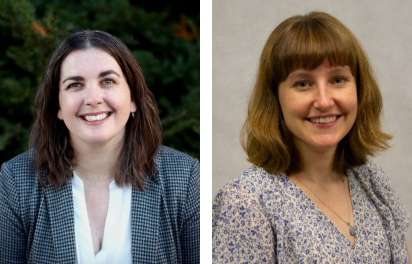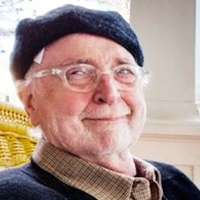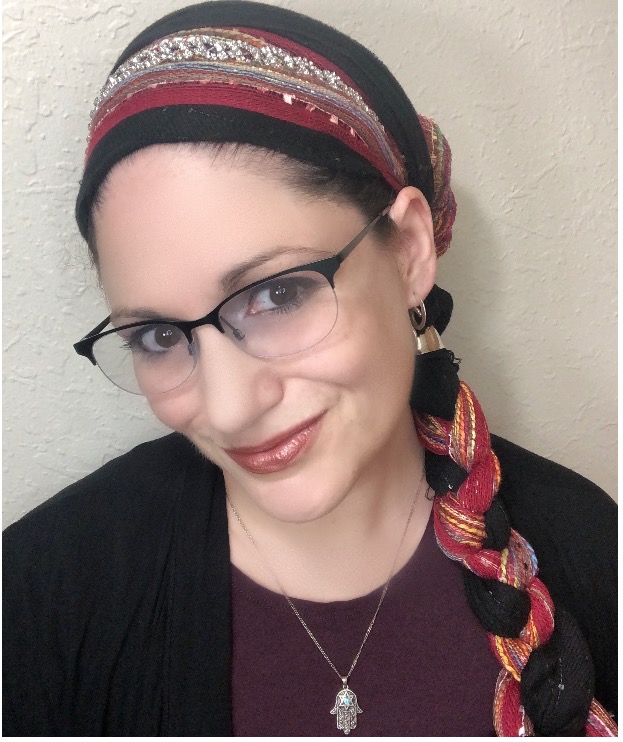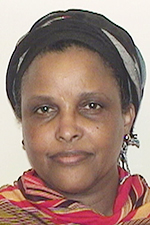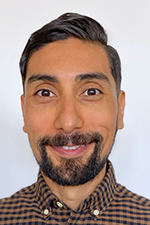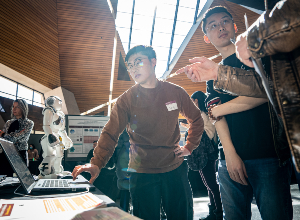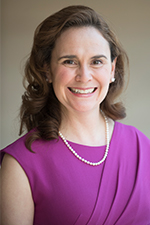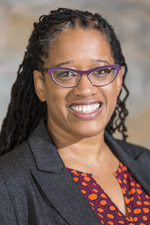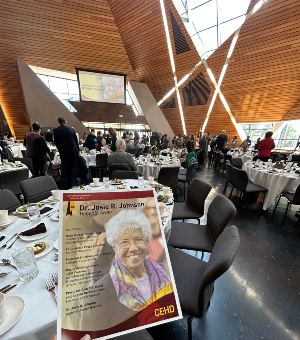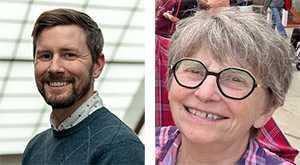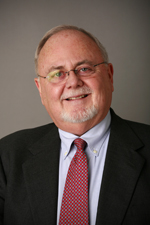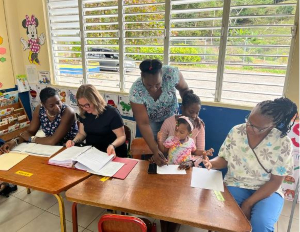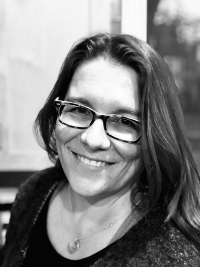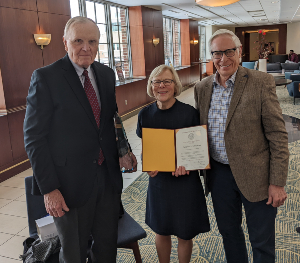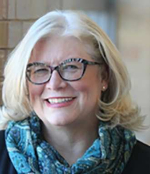The new home of the Institute of Child Development, Carmen D. and James R. Campbell Hall, is ushering in a new era for ICD’s hallmark programs—human development and early childhood education. But buildings are only as good as the people working inside them, and a cohort of ICD alumni has come together to help ensure top doctoral students continue to choose the U of M. Dana Fox (PhD ‘85) wasn’t expecting to attend Minnesota, despite ICD’s high ranking, but visited on the advice of an undergraduate mentor. She was impressed by how she was treated by faculty, saying, “The level of respect and interest in graduate students really stood out. I realized the importance of this kind of support and decided this was where I wanted to be.”
Fox quickly bonded with her peers. She recalls many late nights studying and having fun with her classmates in the Florence Goodenough Library and the influence of advisers such as Michael Maratsos, W. Andrew Collins, and Richard Weinberg.
While in school, Fox received a fellowship that enabled her to focus on her dissertation research without needing a job. Fox went on to spend several years at Washburn Center for Children, creating a team that transformed the organization into a state leader in children’s mental health. A few years ago, while reviewing her estate plans, she recalled the financial award, which included encouragement to give back in the future. After talking with the CEHD development office, she decided to establish a fund specifically for ICD students.
With the goal of creating a larger endowment, she approached others who had been at ICD with her. Many were excited about helping establish the ICD Alumni Doctoral Fellowship. Other founding donors are Nancy Hazen (PhD ‘79), Bruce Bobbitt (PhD ‘79), Emily Bushnell (PhD ‘79), Jeffrey Lockman (PhD ‘80), Amy Lederberg (MA ‘77, PhD ‘81), and Celia Brownell (PhD ‘82). To date, they have raised over $50,000; several also are making estate commitments. They intend to grow the fellowship to eventually provide full funding for a student.
Fox hopes future students will be inspired to give back, advising them to “work hard, be true to yourself, and after you achieve success and stability, remember to donate to the ICD Alumni Doctoral Fellowship.” Visit z.umn.edu/ICDAlumniDoctoralFellowship for more details.
Fox shared some of her memories about ICD in the following Q & A:
Why did you decide to attend U of M? Pursue a child psychology degree?
The Institute of Child Development (ICD) was one of the top programs in the country. One of my undergraduate mentors at [University of] Penn strongly urged me to apply, even though I really expected to go to a school on the east or west coast. I made some on-campus visits to graduate programs that offered me admission and decided to visit Minnesota, just to please her, even though I was not seriously considering it. The difference in how I was treated here compared to the other schools during those visits was remarkable. The faculty of ICD went out of their way to spend time with me, not to mention providing airport transportation, home hospitality, and a tour of the Minneapolis lakes. The level of respect and interest in graduate students really stood out. I realized the importance of this kind of support and decided this was where I wanted to be.
What’s a favorite memory from your time in ICD?
Many late nights studying and having fun together with classmates in the Florence Goodenough Library at ICD.
What about your degree do you find useful today, and/ or how did it help you in your career in child mental health?
The foundations and perspective on typical development and developmental paths inform my work. I find it is more powerful than starting with the lens of deviation or pathology. Later in my career, I added competencies in caring for adults and older adults, and the developmental framework continues to be very valuable in that work.
Of what contribution or achievement from your career are you most proud?
After getting my doctoral degree, I went to work at what was then Washburn Child Guidance Center. I was part of a team that transformed the organization, bringing in developmental perspectives on assessment and mental health treatment. I started a doctoral psychology internship and led the creation of their school based and in home treatment programs. As a result, Washburn Center has grown exponentially and is truly a state leader in children’s mental health.
Who are key mentors or people who deeply influenced you (faculty and/ or other students) from your time at UM?
Advisers at various points of my graduate studies — Andy Collins, Rich Weinberg, Michael Maratsos, and Norman Garmezy. David Weiss whose class in psychometric theory solidified my understanding of science. Helen Dickason, long-time assistant to the ICD director, also played a big role in supporting all of the grad students in finding our way in Minnesota and the field.
What advice do you have for current students?
Work hard, be true to yourself, and after you achieve success and stability, remember to donate to the ICD Alumni Doctoral Fellowship.
I know part of your motivation for giving back is that you received the Stanwood Johnston Fellowship while on campus. What inspired you to actually make the gift at this particular moment in time?
I had been reviewing my estate planning to include legacy gifts and remembered the request that came along with that fellowship, to contribute back to the fellowship fund if financial circumstances later in life allowed. I wanted to do that for a while but was not sure where to start. I had searched online and did not find evidence that this fellowship was still being awarded. As luck would have it, one of the staff of the CEHD Development team became a tenant in my duplex. I sought out her advice, and she put me in touch with her colleague who helped me begin the process. As we researched the situation, it became clear that starting a fund dedicated to ICD students was the preferred way to pay it forward.
Share a bit about your cohort who have come together to support the ICD Alumni Doctoral Fellowship: memories from campus, how you stay in touch, how you developed and implemented the plan for a group gift.
Our class of ten began graduate school in 1974. We bonded particularly well and enjoyed our years together at ICD. When I got the idea of beginning a fellowship, I also gave thought to how to set it up so that it would eventually have sufficient funds to make large grants. I hope that my legacy gift will be substantial but knew that more would be needed. I approached my close friend Jeffrey Lockman (PhD ’80) and asked him if he would join me in establishing the fellowship, and he agreed.
Jeff and I had been housemates and have stayed close over all these years while he was teaching at Tulane. I had less frequent contact with most of the others since I did not continue in an academic career but always enjoyed catching up when the Society for Research in Child Development (SRCD) held its meetings in Minnesota. We had been looking forward to getting together at SRCD 2021, but the pandemic interfered with an in-person event. Jeff hosted a zoom “party” for all of us instead. Toward the end of the party, I shared the plan and asked if others might be interested in participating and several were. Since then, we have had a few meetings and together have raised over $50,000 to establish the fund. There will be a small award made in the 2023-24 academic year. We have a goal of ultimately raising at least $1,000,000 to achieve the goal of fully funding a graduate student. The guidelines for the award encourage consideration of support for students with financial need or who will enhance the diversity of the field.
In addition to myself, the founding donors of this fund are: Jeff Lockman, Amy Lederberg (MA ’77, PhD ’81), Nancy Hazen (PhD ’79), Celia Brownell (PhD ’82), Bruce Bobbitt (PhD ’79), and Emily Bushnell (PhD ’79). I want to especially thank those who have also made a legacy pledge and the others who are considering doing the same.
Is there anything else that you’d like to mention?
The Stanwood Johnston Fellowship was extremely helpful, as it enabled me to focus on my dissertation research without needing to simultaneously work as a research or teaching assistant.


